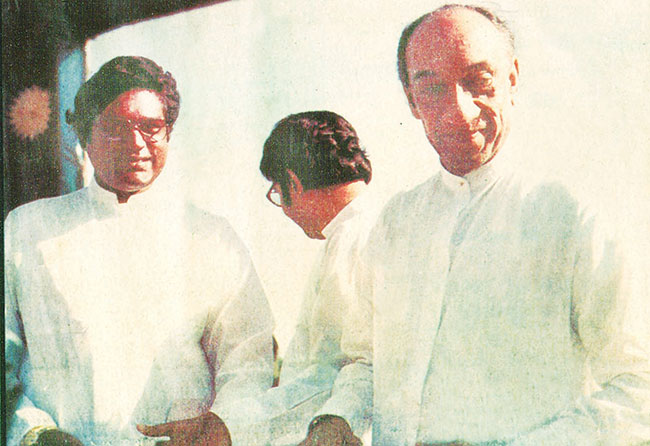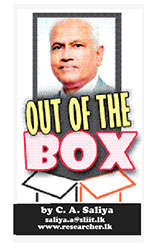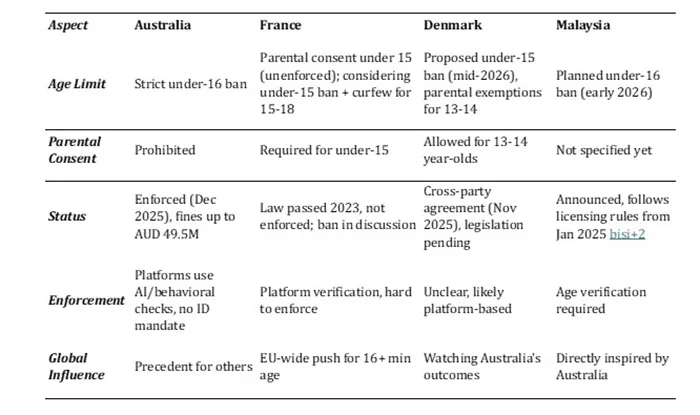Features
The flamboyant tycoon

Some personal recollections
BY NANDA GODAGE
I returned to Sri Lanka in 1979 from a tour of duty in the Philippines and reassumed duties at the Foreign Ministry. One morning shortly afterwards President J.R. Jayewardene summoned me. I had never met the President and was quite curious as to how he knew of my existence. Minutes after I met him and after the customary exchange of pleasantries, that mystery was solved when the President complimented me on a ‘political report’ on the 1978 elections in the Philippines, which I had sent to Secretary/Foreign Affairs. I also sent a copy to my friend, Minister Athulathmudali, who had found it interesting and he had shared it with the President.
As for the reason for his having summoned me, that too was explained. The President very quickly came to the point. He wanted me to assume duties as Secretary-General of the precursor to the present Board of Investment, the Greater Colombo Economic Commission, as it was then known. Perhaps some reports on the functioning of the Batan export Processing Zone in the Philippines and on Investment Promotion in the Philippines, which I had sent my minister friend had also been shared with the President.
And that was how I found I myself being appointed as SG of the institution which the President often described as his pet project for which he took personal responsibility.
It was a presidential order and as such I had no option. The Katunayake ‘Free Trade Zone’ had been established through an Act of Parliament, which gave it wide-ranging powers—it was not only a Board of Investment but also the local authority for an area larger than Singapore. Even before 1 joined the institution I was aware that it was the pet hate of the Communists and their newspaper — the Aththa — the ‘Free Trade Zone’ — (I don’t know why they called it that instead of calling it the Export Processing Zone—which it was) referred to it as the Wahal Kalapaya or the slave zone, not giving credit to the fact that the ‘Zone was to be the source of employment to thousand who would otherwise have been unemployed and further, in their hatred for private enterprise, not realizing, as President JR himself said to me, “workers have their dignity and they are also voters. I created the Zone to give employment and give the people a better life not to lose votes”. On one occasion when the Aththa carried a headline report of how workers of a garment factory were put out of their lunch room to make way for sewing machines the President ordered me to close the factory and send the manager who had learned ‘bad ways’ in the Philippines out of the country. His words still echo, “The workers are our people. I will not let them to be exploited”.
Upali who was out of the country at the time endorsed the words of the President and gave instruction to the Senior Manager Industrial Relations to ensure that no worker in the Zone was exploited; this was also a matter which was wholly supported by the politician on the Board – the able and formidable Deputy Director General Mr. Paul Perera.
The newspapers at the time were also full of reports about differences between the flamboyant Chairman/Director General Upali Wijewardene and a particular colleague of his. The ‘tabloids’ also referred to the Prime Minister and the Finance Minister also ‘gunning’ for the chairman, whom they viewed as someone who could cheat them of their ambitions; in the circumstances one would understand my own reluctance to accept the appointment, but I was curtly informed that President Jayewardene had in fact made an order and that I had no option.
When I assumed duties, Upali Wijewardene was away from the country. We had met socially once or twice before, but I did not in fact really know him. When he returned from his overseas tour he sent for me-we shook hand and his first words were “you know I was never consulted about your appointment.” My response was “neither was I and had I half a chance I would not have come to the Sarpa Kalapya.” He laughed loud and long (he shook all over when he had a good belly laugh) and a friendship was made.
We worked out of the same floor – I was not only the Executive Secretary but he considered me to be his senior executive. Whenever he came to office after a break—(he came in only when he was in the country – he traveled extensively, but kept in touch on the phone) he called me in for a briefing’ On one of those occasions he asked me the following question: ‘What is the grade a student receives if he makes twenty five mistakes out of one hundred in an examination?’
The answer was of course obvious – “disto” (distinction) I replied. Upali responded with a “quite, so don’t worry, take decisions, they would come to attention only if you make mistakes of 25% and over.” He had the strength to delegate, He also had the ability to spot talent and was never afraid to give responsibility. I recall the case of a young man who looked
so boyish that I thought him to be a fourth former, whereas he was a graduate of good US University. Upali wanted to post him to an important overseas office and some of us had reservations because of the age and the fact that the young man was just out of University. But he said ‘no, lets try him out’ The recruit certainly delivered. He is presently with the UN holding a responsible position.
Upali, was by some; considered aloof and arrogant, but those of us who worked with him, found him to be quite a genial person fond of relating anecdotes. He seemed to always want an audience. I recall a particular anecdote, he had applied to Levers for a single post of management trainee. After many interviews only two applicants survived and he was one of them.
The CEO of Levers, a foreigner, had invited them to lunch at the Galle Face Hotel (according to Upali to test their table manners) The soup had been served and his competitor had tilted the soup plate towards himself to gather the last spoonfuls. Upali ended the story. ‘1 knew then that the job was mine’.
Upali never forgot his beginning as a businessman -he would often recall that he did not have the capital to make his dream of becoming a dollar millionaire at 30-years of age, come true. He would refer to the purchase of a ‘thachchi’ toffee business and remember those who had helped him. One story bears relating. There were four or five persons around the table and someone made a derogatory reference to the late Mr. TB Ilangaratne. That was the first time I saw Upali angry. He almost assaulted the man saying that Mr. Ilangaratne was eking out a bare existence. If he had made money in the manner that his political enemies made out, he would not have to depend on the charity of friends to survive. Upali; the capitalist had many socialist friends—one of whom was Sarath Navana of the LSSP, who edited the LSSP Party paper the Janadina’,
Upali was of course quite ambitious and often made his ambitions known to his ‘audience.’This I believe was the cause of his undoing. He made more enemies than friends, and his enemies were very powerful persons. The High Posts Committee of the House had not cleared the members of the Commission even by the end of 1979 (they had been appointed in 1978). When the hearing finally came around, rivalries within the Commission were not as bitter as they had once been. Old wounds had been healed and we expected the Commission to have easy clearance
That was not to be. Prime Minister Premadasa hated the very sight of Upali and. it was said by those present, tore into Upali from the word ‘go’ and had at one point referred to his ‘retinue: The SUN newspaper had reported a story of how Upali’s helicopter had been used to take supporters to Kamburupitiya. Upali, who had no respect for Premadasa had snapped back’yes of course. we look after those who work for us and this is in the best feudal tradition – something which you will not know anything about’.
The High Posts Committee headed by Premadasa found Upali unsuitable for the job of Chairman/Director General of the GCEC. It was quite ironical that this Committee which found a draftsman who had only ‘relative merit, (he was an immediate relative of Premadasa), eminently suitable to be our Ambassador in Sweden, found Sri Lanka’s forenost industrialist and venture capitalist, unsuitable to be head of the GCEC and not because they perceived any conflict of interest.
What had indeed become a huge joke did not end there. The findings of the High Posts Committee created by President Jayewardene had absolutely no effect on the president. Jayewardene had told Upali that it was he who had appointed him and therefore there was no need to step down! And he didn’t. And nothing happened. Those were the days!
JRJ, though he stood by his kinsman on that occasion let him down badly on another. The Kamburupitiya seat in Parliament had fallen vacant and Upali, who hailed from Kamburupitiya staked a claim. He considered himself as the obvious choice for the UNP ticket.
President Jayewardene had confirmed that he would be nominated. Upali summoned a special meeting of the board and farewell but he was in for an absolute shock, God only knows who could have held a. gun at JR.1’s head. but he changed his mind and gave the ticket to a nonentity from Galle whose name is now forgotten even by the people of Kamburupitiya. He was said to have been Mr. Premadasas nominee.
Despite his other obligations as Chairman of the ever expanding ‘Upali Group’ with big business interests in Malaysia, Singapore and the UK, he devoted much time to the GCEC. His style of management to which I have referred to earlier, in another context, was quite simple dorit bring problems to me. You are paid to take decisions. If you wish to consult me on solutions, bringyour solutions across and we can discuss them’
Investment promotion was an area in which he quite naturally revelled. I recall that our Senior Manager Investment Promotion then was the able and dynamic Rohan Weerasinghe, now a Director at Bartleets. Rohan did the legwork and the result had to be of the highest professional standards. Upali never compromised on standards when it came to work and never entertained excuses.
The promotion team led by Upali travelled to the US, the UK and Australia forpresenGations. Incidentally the Chairman did not charge the government travelling expenses, though he travelled first class and stayed in suites in five star hotels. On a number of occasions questions were asked in Parliament, on the instigation of his enemies, about the amounts spent on business trips. The answers always cited expenditure incurred on account of the rest of us—and it resulted in the matter being brought to the attention oft lie President who put an end to the witch-hunt.
It was Upali who brought Motorola Semi Conductors and Harris Semi Conductors to this country. Unfortunately they packed up and left after they incidents of Black July stating that the country was not stable Upali had the GCEC treat every prospective investors as a VIP. They were looked after from the time arrival till they left.
One happening in the US on one of our trips, bears recalling. We were making our presentation (to a major US’ Corporation) when the President of the Corporation dropped in to spend a few minutes with us and apologize for his inability to he present throughout the presentation. He glanced I I Trough the CV of Upali, and perhaps noting that Upali had big business interests in South East Asia, told him that their subsidiaries in South East Asia were having problems. He asked Upali a few questions and what happened next was quite amazing.
The company president called in a number of his senior management teams to discus his company’s problems and when it was pointed out that we had a plane to catch to another destination that afternoon, the he insisted that we be his guests at an exclusive club for dinner that night and fly out to our next destination on his executive jet the following morning.
I recall another interesting incident in Australia in 1981. We had planned investment promotion meetings in Sydney and Melbourne. I had gone ahead of the others to Sydney when Upali arrived the day before the workshop, I told him of a big horse race that was scheduled for that Saturday and suggested that we stay a day longer and watch it and move on to our next destination.
‘Not just watch it’ lie said. “I may have a horse running in it”. He wanted to buy a horse and enter it for the race. I thought was a joke. But two days later when I was having breakfast he walked in to the dining room with his entourage. I inquired as to where they had all been so early He replied, “we went to buy a horse”. He had indeed bought a horse,’My Lord Avon’, was its name. When I casually inquired as to the price paid his answer made me drop my cutlery At JD 149,000! He certainly did things in style!
Upali was the only Sri Lankan known in international business circles. His reputation was high in East Asia. He had been featured in many well known magazines including Business Week but when the prestigious Fortune magazine featured him, that certainly meant that he had arrived.
But his success was also his downfall. Perhaps I should not insult the other ethnic groups in Sri Lanka by lumping them with us Sinhalese in this regard Sadly, the Sinhalese often hate to see another of their race succeed.
Upali had more than his fair share of enemies and he indeed made his own contribution to building a hate bank.
I shall conclude with a story told to me by the late Mervyn de Silva.
He had interviewed Upali for a story he intended to send to a foreign magazine. Mervyn had completed his interview and was in the process of gathering up his papers when he had casually inquired as to whether he had a sort of hero. Upalfs answer had shocked him. He had put down his papers and sat down to do new article for his own magazine, the Lanka Guardian.
Upali had said that his hero on the Sri Lanka political scene was SWRD Bandaranaike! Mervyn carried the story in the December 1991 issue of the Lanka Guardian and Upali was asked to resign days afterwards by his cousin the President, Mr.JR Jayewardene! Perhaps had he said that his hero was JR he probably would have ended up in Parliament and who knows where afterwards.
(The writer served as Executive Secretary of the Greater Colombo Economic Commission when Upali Wijewardene was Chairman/Director General. This article first appeared on Sunday Island anniversary issue of Oct 01, 2006)
Features
Australia’s social media ban: A sledgehammer approach to a scalpel problem

 When governments panic, they legislate. When they legislate in panic, they create monsters. Australia’s world-first ban on social media for under-16s, which came into force on 10 December, 2025, is precisely such a monster, a clumsy, authoritarian response to a legitimate problem that threatens to do more harm than good.
When governments panic, they legislate. When they legislate in panic, they create monsters. Australia’s world-first ban on social media for under-16s, which came into force on 10 December, 2025, is precisely such a monster, a clumsy, authoritarian response to a legitimate problem that threatens to do more harm than good.
Prime Minister Anthony Albanese hailed it as a “proud day” for Australian families. One wonders what there is to be proud about when a liberal democracy resorts to blanket censorship, violates children’s fundamental rights, and outsources enforcement to the very tech giants it claims to be taming. This is not protection; it is political theatre masquerading as policy.
The Seduction of Simplicity
The ban’s appeal is obvious. Social media platforms have become toxic playgrounds where children are subjected to cyberbullying, addictive algorithms, and content that can genuinely harm their mental health. The statistics are damning: 40% of Australian teens have experienced cyberbullying, youth self-harm hospital admissions rose 47% between 2012 and 2022, and depression rates have skyrocketed in tandem with smartphone adoption. These are real problems demanding real solutions.
But here’s where Australia has gone catastrophically wrong: it has conflated correlation with causation and chosen punishment over education, restriction over reform, and authoritarian control over empowerment. The ban assumes that removing children from social media will magically solve mental health crises, as if these platforms emerged in a vacuum rather than as symptoms of deeper societal failures, inadequate mental health services, overworked parents, underfunded schools, and a culture that has outsourced child-rearing to screens.
Dr. Naomi Lott of the University of Reading hit the nail on the head when she argued that the ban unfairly burdens youth for tech firms’ failures in content moderation and algorithm design. Why should children pay the price for corporate malfeasance? This is akin to banning teenagers from roads because car manufacturers built unsafe vehicles, rather than holding those manufacturers accountable.
The Enforcement Farce
The practical implementation of this ban reads like dystopian satire. Platforms must take “reasonable steps” to prevent access, a phrase so vague it could mean anything or nothing. The age verification methods being deployed include AI-driven facial recognition, behavioural analysis, government ID scans, and something called “AgeKeys.” Each comes with its own Pandora’s box of problems.
Facial recognition technology has well-documented biases against ethnic minorities. Behavioural analysis can be easily gamed by tech-savvy teenagers. ID scans create massive privacy risks in a country that has suffered repeated data breaches. And zero-knowledge proof, while theoretically elegant, require a level of technical sophistication that makes them impractical for mass adoption.
Already, teenagers are bragging online about circumventing the restrictions, prompting Albanese’s impotent rebuke. What did he expect? That Australian youth would simply accept digital exile? The history of prohibition, from alcohol to file-sharing, teaches us that determined users will always find workarounds. The ban doesn’t eliminate risk; it merely drives it underground where it becomes harder to monitor and address.
Even more absurdly, platforms like YouTube have expressed doubts about enforcement, and Opposition Leader Sussan Ley has declared she has “no confidence” in the ban’s efficacy. When your own political opposition and the companies tasked with implementing your policy both say it won’t work, perhaps that’s a sign you should reconsider.

The Rights We’re Trading Away
The legal challenges now percolating through Australia’s High Court get to the heart of what’s really at stake here. The Digital Freedom Project, led by teenagers Noah Jones and Macy Neyland, argues that the ban violates the implied constitutional freedom of political communication. They’re right. Social media platforms, for all their flaws, have become essential venues for democratic discourse. By age 16, many young Australians are politically aware, engaged in climate activism, and participating in public debates. This ban silences them.
The government’s response, that child welfare trumps absolute freedom, sounds reasonable until you examine it closely. Child welfare is being invoked as a rhetorical trump card to justify what is essentially state paternalism. The government isn’t protecting children from objective harm; it’s making a value judgment about what information they should be allowed to access and what communities they should be permitted to join. That’s thought control, not child protection.
Moreover, the ban creates a two-tiered system of rights. Those over 16 can access platforms; those under cannot, regardless of maturity, need, or circumstance. A 15-year-old seeking LGBTQ+ support groups, mental health resources, or information about escaping domestic abuse is now cut off from potentially life-saving communities. A 15-year-old living in rural Australia, isolated from peers, loses a vital social lifeline. The ban is blunt force trauma applied to a problem requiring surgical precision.
The Privacy Nightmare
Let’s talk about the elephant in the digital room: data security. Australia’s track record here is abysmal. The country has experienced multiple high-profile data breaches, and now it’s mandating that platforms collect biometric data, government IDs, and behavioural information from millions of users, including adults who will need to verify their age to distinguish themselves from banned minors.
The legislation claims to mandate “data minimisation” and promises that information collected solely for age verification will be destroyed post-verification. These promises are worth less than the pixels they’re displayed on. Once data is collected, it exists. It can be hacked. It can be subpoenaed. It can be repurposed. The fine for violations, up to AUD 9.5 million, sounds impressive until you realise that’s pocket change for tech giants making billions annually.
We’re creating a massive honeypot of sensitive information about children and families, and we’re trusting companies with questionable data stewardship records to protect it. What could possibly go wrong?
The Global Domino Delusion
Proponents like US Senator Josh Hawley and author Jonathan Haidt praise Australia’s ban as a “bold precedent” that will trigger global reform. This is wishful thinking bordering on delusion. What Australia has actually created is a case study in how not to regulate technology.
France, Denmark, and Malaysia are watching, but with notable differences. France’s model includes parental consent options. Denmark proposes exemptions for 13-14-year-olds with parental approval. These approaches recognise what Australia refuses to acknowledge: that blanket prohibitions fail to account for individual circumstances and family autonomy.
The comparison table in the document reveals the stark rigidity of Australia’s approach. It’s the only country attempting outright prohibition without parental consent. This isn’t leadership; it’s extremism. Other nations may cherry-pick elements of Australia’s approach while avoiding its most draconian features. (See Table)

The Real Solutions We’re Ignoring
Here’s what actual child protection would look like: holding platforms legally accountable for algorithmic harm, mandating transparent content moderation, requiring platforms to offer chronological feeds instead of engagement-maximising algorithms, funding digital literacy programmes in schools, properly resourcing mental health services for young people, and empowering parents with better tools to guide their children’s online experiences.
Instead, Australia has chosen the path of least intellectual effort: ban it and hope for the best. This is governance by bumper sticker, policy by panic.
Mia Bannister, whose son’s suicide has been invoked repeatedly to justify the ban, called parental enforcement “short-term pain, long-term gain” and urged families to remove devices entirely. But her tragedy, however heart-wrenching, doesn’t justify bad policy. Individual cases, no matter how emotionally compelling, are poor foundations for sweeping legislation affecting millions.
Conclusion: The Tyranny of Good Intentions
Australia’s social media ban is built on good intentions, genuine concerns about child welfare, and understandable frustration with unaccountable tech giants. But good intentions pave a very particular road, and this road leads to a place where governments dictate what information citizens can access based on age, where privacy becomes a quaint relic, and where young people are infantilised rather than educated.
The ban will fail on its own terms, teenagers will circumvent it, platforms will struggle with enforcement, and the mental health crisis will continue because it was never primarily about social media. But it will succeed in normalising digital authoritarianism, expanding surveillance infrastructure, and teaching young Australians that their rights are negotiable commodities.
When this ban inevitably fails, when the promised mental health improvements don’t materialize, when data breaches expose the verification systems, and when teenagers continue to access prohibited platforms through VPNs and workarounds, Australia will face a choice: double down on enforcement, creating an even more invasive surveillance state, or admit that the entire exercise was a costly mistake.
Smart money says they’ll choose the former. After all, once governments acquire new powers, they rarely relinquish them willingly. And that’s the real danger here, not that Australia will fail to protect children from social media, but that it will succeed in building the infrastructure for a far more intrusive state. The platforms may be the proximate target, but the ultimate casualties will be freedom, privacy, and trust.
Australia didn’t need a world-first ban. It needed world-class thinking. Instead, it settled for a world of trouble.
(The writer, a senior Chartered Accountant and professional banker, is Professor at SLIIT, Malabe. The views and opinions expressed in this article are personal.)
Features
Sustaining good governance requires good systems

A prominent feature of the first year of the NPP government is that it has not engaged in the institutional reforms which was expected of it. This observation comes in the context of the extraordinary mandate with which the government was elected and the high expectations that accompanied its rise to power. When in opposition and in its election manifesto, the JVP and NPP took a prominent role in advocating good governance systems for the country. They insisted on constitutional reform that included the abolition of the executive presidency and the concentration of power it epitomises, the strengthening of independent institutions that overlook key state institutions such as the judiciary, public service and police, and the reform or repeal of repressive laws such as the PTA and the Online Safety Act.
The transformation of a political party that averaged between three to five percent of the popular vote into one that currently forms the government with a two thirds majority in parliament is a testament to the faith that the general population placed in the JVP/ NPP combine. This faith was the outcome of more than three decades of disciplined conduct in the aftermath of the bitter experience of the 1988 to 1990 period of JVP insurrection. The manner in which the handful of JVP parliamentarians engaged in debate with well researched critiques of government policy and actions, and their service in times of disaster such as the tsunami of 2004 won them the trust of the people. This faith was bolstered by the Aragalaya movement which galvanized the citizens against the ruling elites of the past.
In this context, the long delay to repeal the Prevention of Terrorism Act which has earned notoriety for its abuse especially against ethnic and religious minorities, has been a disappointment to those who value human rights. So has been the delay in appointing an Auditor General, so important in ensuring accountability for the money expended by the state. The PTA has a long history of being used without restraint against those deemed to be anti-state which, ironically enough, included the JVP in the period 1988 to 1990. The draft Protection of the State from Terrorism Act (PSTA), published in December 2025, is the latest attempt to repeal and replace the PTA. Unfortunately, the PSTA largely replicates the structure, logic and dangers of previous failed counter terrorism bills, including the Counter Terrorism Act of 2018 and the Anti Terrorism Act proposed in 2023.
Misguided Assumption
Despite its stated commitment to rule of law and fundamental rights, the draft PTSA reproduces many of the core defects of the PTA. In a preliminary statement, the Centre for Policy Alternatives has observed among other things that “if there is a Detention Order made against the person, then in combination, the period of remand and detention can extend up to two years. This means that a person can languish in detention for up to two years without being charged with a crime. Such a long period again raises questions of the power of the State to target individuals, exacerbated by Sri Lanka’s history of long periods of remand and detention, which has contributed to abuse and violence.” Human Rights lawyer Ermiza Tegal has warned against the broad definition of terrorism under the proposed law: “The definition empowers state officials to term acts of dissent and civil disobedience as ‘terrorism’ and will lawfully permit disproportionate and excessive responses.” The legitimate and peaceful protests against abuse of power by the authorities cannot be classified as acts of terror.
The willingness to retain such powers reflects the surmise that the government feels that keeping in place the structures that come from the past is to their benefit, as they can utilise those powers in a crisis. Due to the strict discipline that exists within the JVP/NPP at this time there may be an assumption that those the party appoints will not abuse their trust. However, the country’s experience with draconian laws designed for exceptional circumstances demonstrates that they tend to become tools of routine governance. On the plus side, the government has given two months for public comment which will become meaningful if the inputs from civil society actors are taken into consideration.
Worldwide experience has repeatedly demonstrated that integrity at the level of individual leaders, while necessary, is not sufficient to guarantee good governance over time. This is where the absence of institutional reform becomes significant. The aftermath of Cyclone Ditwah in particular has necessitated massive procurements of emergency relief which have to be disbursed at maximum speed. There are also significant amounts of foreign aid flowing into the country to help it deal with the relief and recovery phase. There are protocols in place that need to be followed and monitored so that a fiasco like the disappearance of tsunami aid in 2004 does not recur. To the government’s credit there are no such allegations at the present time. But precautions need to be in place, and those precautions depend less on trust in individuals than on the strength and independence of oversight institutions.
Inappropriate Appointments
It is in this context that the government’s efforts to appoint its own preferred nominees to the Auditor General’s Department has also come as a disappointment to civil society groups. The unsuitability of the latest presidential nominee has given rise to the surmise that this nomination was a time buying exercise to make an acting appointment. For the fourth time, the Constitutional Council refused to accept the president’s nominee. The term of the three independent civil society members of the Constitutional Council ends in January which would give the government the opportunity to appoint three new members of its choice and get its way in the future.
The failure to appoint a permanent Auditor General has created an institutional vacuum at a critical moment. The Auditor General acts as a watchdog, ensuring effective service delivery promoting integrity in public administration and providing an independent review of the performance and accountability. Transparency International has observed “The sequence of events following the retirement of the previous Auditor General points to a broader political inertia and a governance failure. Despite the clear constitutional importance of the role, the appointment process has remained protracted and opaque, raising serious questions about political will and commitment to accountability.”
It would appear that the government leadership takes the position they have been given the mandate to govern the country which requires implementation by those they have confidence in. This may explain their approach to the appointment (or non-appointment) at this time of the Auditor General. Yet this approach carries risks. Institutions are designed to function beyond the lifespan of any one government and to protect the public interest even when those in power are tempted to act otherwise. The challenge and opportunity for the NPP government is to safeguard independent institutions and enact just laws, so that the promise of system change endures beyond personalities and political cycles.
by Jehan Perera
Features
General education reforms: What about language and ethnicity?

 A new batch arrived at our Faculty again. Students representing almost all districts of the country remind me once again of the wonderful opportunity we have for promoting social and ethnic cohesion at our universities. Sadly, however, many students do not interact with each other during the first few semesters, not only because they do not speak each other’s language(s), but also because of the fear and distrust that still prevails among communities in our society.
A new batch arrived at our Faculty again. Students representing almost all districts of the country remind me once again of the wonderful opportunity we have for promoting social and ethnic cohesion at our universities. Sadly, however, many students do not interact with each other during the first few semesters, not only because they do not speak each other’s language(s), but also because of the fear and distrust that still prevails among communities in our society.
General education reform presents an opportunity to explore ways to promote social and ethnic cohesion. A school curriculum could foster shared values, empathy, and critical thinking, through social studies and civics education, implement inclusive language policies, and raise critical awareness about our collective histories. Yet, the government’s new policy document, Transforming General Education in Sri Lanka 2025, leaves us little to look forward to in this regard.
The policy document points to several “salient” features within it, including: 1) a school credit system to quantify learning; 2) module-based formative and summative assessments to replace end-of-term tests; 3) skills assessment in Grade 9 consisting of a ‘literacy and numeracy test’ and a ‘career interest test’; 4) a comprehensive GPA-based reporting system spanning the various phases of education; 5) blended learning that combines online with classroom teaching; 6) learning units to guide students to select their preferred career pathways; 7) technology modules; 8) innovation labs; and 9) Early Childhood Education (ECE). Notably, social and ethnic cohesion does not appear in this list. Here, I explore how the proposed curriculum reforms align (or do not align) with the NPP’s pledge to inculcate “[s]afety, mutual understanding, trust and rights of all ethnicities and religious groups” (p.127), in their 2024 Election Manifesto.
Language/ethnicity in the present curriculum
The civil war ended over 15 years ago, but our general education system has done little to bring ethnic communities together. In fact, most students still cannot speak in the “second national language” (SNL) and textbooks continue to reinforce negative stereotyping of ethnic minorities, while leaving out crucial elements of our post-independence history.
Although SNL has been a compulsory subject since the 1990s, the hours dedicated to SNL are few, curricula poorly developed, and trained teachers few (Perera, 2025). Perhaps due to unconscious bias and for ideological reasons, SNL is not valued by parents and school communities more broadly. Most students, who enter our Faculty, only have basic reading/writing skills in SNL, apart from the few Muslim and Tamil students who schooled outside the North and the East; they pick up SNL by virtue of their environment, not the school curriculum.
Regardless of ethnic background, most undergraduates seem to be ignorant about crucial aspects of our country’s history of ethnic conflict. The Grade 11 history textbook, which contains the only chapter on the post-independence period, does not mention the civil war or the events that led up to it. While the textbook valourises ‘Sinhala Only’ as an anti-colonial policy (p.11), the material covering the period thereafter fails to mention the anti-Tamil riots, rise of rebel groups, escalation of civil war, and JVP insurrections. The words “Tamil” and “Muslim” appear most frequently in the chapter, ‘National Renaissance,’ which cursorily mentions “Sinhalese-Muslim riots” vis-à-vis the Temperance Movement (p.57). The disenfranchisement of the Malaiyaha Tamils and their history are completely left out.
Given the horrifying experiences of war and exclusion experienced by many of our peoples since independence, and because most students still learn in mono-ethnic schools having little interaction with the ‘Other’, it is not surprising that our undergraduates find it difficult to mix across language and ethnic communities. This environment also creates fertile ground for polarizing discourses that further divide and segregate students once they enter university.
More of the same?
How does Transforming General Education seek to address these problems? The introduction begins on a positive note: “The proposed reforms will create citizens with a critical consciousness who will respect and appreciate the diversity they see around them, along the lines of ethnicity, religion, gender, disability, and other areas of difference” (p.1). Although National Education Goal no. 8 somewhat problematically aims to “Develop a patriotic Sri Lankan citizen fostering national cohesion, national integrity, and national unity while respecting cultural diversity (p. 2), the curriculum reforms aim to embed values of “equity, inclusivity, and social justice” (p. 9) through education. Such buzzwords appear through the introduction, but are not reflected in the reforms.
Learning SNL is promoted under Language and Literacy (Learning Area no. 1) as “a critical means of reconciliation and co-existence”, but the number of hours assigned to SNL are minimal. For instance, at primary level (Grades 1 to 5), only 0.3 to 1 hour is allocated to SNL per week. Meanwhile, at junior secondary level (Grades 6 to 9), out of 35 credits (30 credits across 15 essential subjects that include SNL, history and civics; 3 credits of further learning modules; and 2 credits of transversal skills modules (p. 13, pp.18-19), SNL receives 1 credit (10 hours) per term. Like other essential subjects, SNL is to be assessed through formative and summative assessments within modules. As details of the Grade 9 skills assessment are not provided in the document, it is unclear whether SNL assessments will be included in the ‘Literacy and numeracy test’. At senior secondary level – phase 1 (Grades 10-11 – O/L equivalent), SNL is listed as an elective.
Refreshingly, the policy document does acknowledge the detrimental effects of funding cuts in the humanities and social sciences, and highlights their importance for creating knowledge that could help to “eradicate socioeconomic divisions and inequalities” (p.5-6). It goes on to point to the salience of the Humanities and Social Sciences Education under Learning Area no. 6 (p.12):
“Humanities and Social Sciences education is vital for students to develop as well as critique various forms of identities so that they have an awareness of their role in their immediate communities and nation. Such awareness will allow them to contribute towards the strengthening of democracy and intercommunal dialogue, which is necessary for peace and reconciliation. Furthermore, a strong grounding in the Humanities and Social Sciences will lead to equity and social justice concerning caste, disability, gender, and other features of social stratification.”
Sadly, the seemingly progressive philosophy guiding has not moulded the new curriculum. Subjects that could potentially address social/ethnic cohesion, such as environmental studies, history and civics, are not listed as learning areas at the primary level. History is allocated 20 hours (2 credits) across four years at junior secondary level (Grades 6 to 9), while only 10 hours (1 credit) are allocated to civics. Meanwhile, at the O/L, students will learn 5 compulsory subjects (Mother Tongue, English, Mathematics, Science, and Religion and Value Education), and 2 electives—SNL, history and civics are bunched together with the likes of entrepreneurship here. Unlike the compulsory subjects, which are allocated 140 hours (14 credits or 70 hours each) across two years, those who opt for history or civics as electives would only have 20 hours (2 credits) of learning in each. A further 14 credits per term are for further learning modules, which will allow students to explore their interests before committing to a A/L stream or career path.
With the distribution of credits across a large number of subjects, and the few credits available for SNL, history and civics, social/ethnic cohesion will likely remain on the back burner. It appears to be neglected at primary level, is dealt sparingly at junior secondary level, and relegated to electives in senior years. This means that students will be able to progress through their entire school years, like we did, with very basic competencies in SNL and little understanding of history.
Going forward
Whether the students who experience this curriculum will be able to “resist and respond to hegemonic, divisive forces that pose a threat to social harmony and multicultural coexistence” (p.9) as anticipated in the policy, is questionable. Education policymakers and others must call for more attention to social and ethnic cohesion in the curriculum. However, changes to the curriculum would only be meaningful if accompanied by constitutional reform, abolition of policies, such as the Prevention of Terrorism Act (and its proxies), and other political changes.
For now, our school system remains divided by ethnicity and religion. Research from conflict-ridden societies suggests that lack of intercultural exposure in mono-ethnic schools leads to ignorance, prejudice, and polarized positions on politics and national identity. While such problems must be addressed in broader education reform efforts that also safeguard minority identities, the new curriculum revision presents an opportune moment to move this agenda forward.
(Ramya Kumar is attached to the Department of Community and Family Medicine, Faculty of Medicine, University of Jaffna).
Kuppi is a politics and pedagogy happening on the margins of the lecture hall that parodies, subverts, and simultaneously reaffirms social hierarchies.
by Ramya Kumar
-

 News1 day ago
News1 day agoMembers of Lankan Community in Washington D.C. donates to ‘Rebuilding Sri Lanka’ Flood Relief Fund
-

 News6 days ago
News6 days agoPope fires broadside: ‘The Holy See won’t be a silent bystander to the grave disparities, injustices, and fundamental human rights violations’
-

 News6 days ago
News6 days agoPakistan hands over 200 tonnes of humanitarian aid to Lanka
-

 Business6 days ago
Business6 days agoUnlocking Sri Lanka’s hidden wealth: A $2 billion mineral opportunity awaits
-

 News5 days ago
News5 days agoArmy engineers set up new Nayaru emergency bridge
-

 News6 days ago
News6 days agoOfficials of NMRA, SPC, and Health Minister under pressure to resign as drug safety concerns mount
-

 News6 days ago
News6 days agoExpert: Lanka destroying its own food security by depending on imported seeds, chemical-intensive agriculture
-

 Editorial6 days ago
Editorial6 days agoFlawed drug regulation endangers lives













